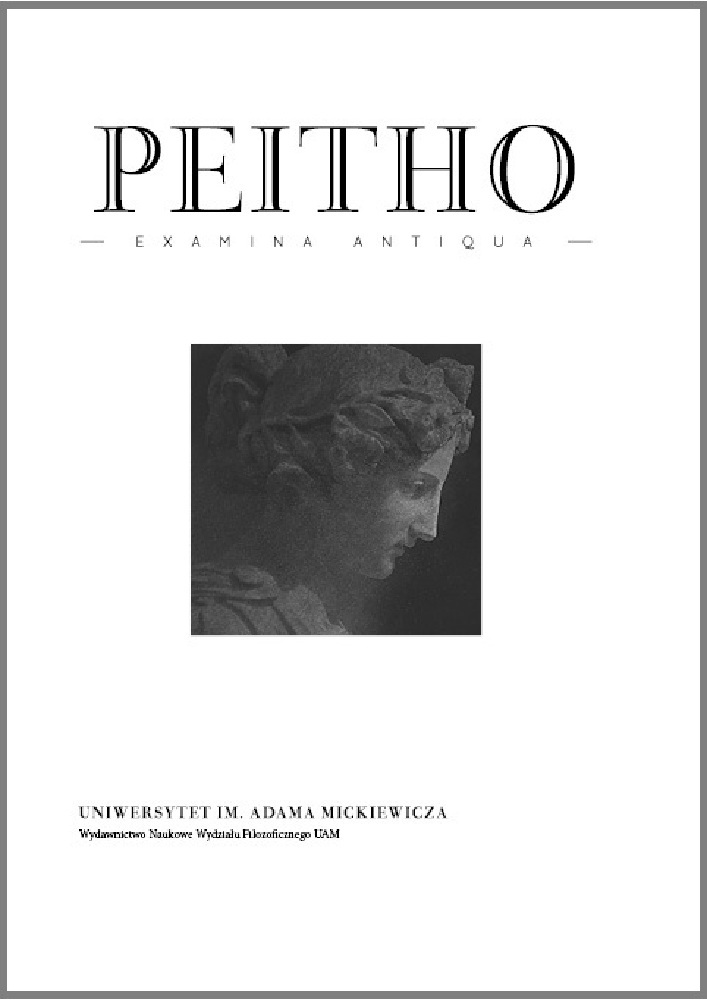Abstract
The first part of the present paper argues against any attempts to find a set of fixed points of a doctrine that could be ascribed to Socrates. The main thesis of the article has it that Socrates was part of a cultural movement that was marked by a tendency to rather raise questions than merely provide answers and boast about having a number of doctrines or doxai of their own. The second part of the paper concentrates on a number of memorable innovations that eventually constituted Greek culture, e.g., the idea that it is possible and desirable to be in full control of oneself and, consequently, to shoulder responsibility for one’s deeds rather than merely avoid and deny it. Thus, Socrates and ancient Socratic literature are shown here to be a probable source of numerous ideas that the western civilization has built on for centuries, these being, for instance, the idea of the limits of our powers. Hence, the conclusion of the article is that it would be a serious mistake to exclude Socrates from this major cultural development, even though the thinker did produce neither a theory nor a body of theories.References
Benson, H., 1992, Essays on the Philosophy of Socrates, Oxford.
Capizzi, A., 1970, Socrate e i personaggi–filosofi in Platone, Roma.
Dover, K.J., 1974, Greek Popular Morality in the Time of Plato and Aristotle, Oxford [trad. ital. Brescia 1983].
Judson L., Karasmanis V. (eds.), 2006, Remembering Socrates. Philosophical Essays, Oxford.
Karasmanis, V. (ed.), 2004, Socrates 2400 Years after his Death, Delphi.
Kohan, W.O., 2009, Sócrates: el enigma de enseñar, Buenos Aires.
Nightingale, A.W., 1995, Genres in Dialogue. Plato and the Construct of Philosophy, Cambridge.
Rossetti, L., 1971, „Recenti sviluppi della questione socratica”, Proteus 2 (6), pp. 161—187 [ripubblicato in tedesco: Idem, 1987, Neueste Entwicklungen in der sokratische Frage, in: A. Patzer (ed.), Der historische Sokrates, Darmstadt, pp. 391—433.
Rossetti, L., 1980, „Ricerche sui ‘dialoghi socratici’ di Fedone e di Euclide”, Hermes 108, pp. 183—200.
Rossetti, L., 1991, „Se sia lecito incolpare gli dei (da Omero a Aristotele)”, in: Studi di Filologia Classica in onore di Giusto Monaco, vol. I, Palermo, pp. 37—53.
Rossetti, L., 2004, “The Sokratikoi Logoi as a Literary Barrier. Toward the Identification of a Standard Socrates Through the Dialogues”, in: V. Karasmanis (ed.), Socrates 2400 Years Since His Death, Athens, pp. 81—94.
Rossetti, L., 2006, „Oltre il demonstrandum. La dimensione metacognitiva dei testi paradossali nell’età dei Sofisti”, Méthexis 19, pp. 125—138.
Rossetti, L., 2008a, „El ‘drama filosófico’, invención del s. V a.C. (Zenón y los Sofistas)”, Revista de Filosofia de la Univ. de Costa Rica 46, pp. 29—38.
Rossetti, L., 2008b, „Socrate enkrates”, Zbornik Matice srpske za klasicne studije 10, pp. 65—79.
Rossetti, L., 2008c, „Sócrates y la cultura del autocontrol”, Limes 20, pp. 39—52.
Rossetti, L., 2008d, „Savoir imiter c’est connaître: le cas de Mémorables III, 8”, in: M. Narcy et A. Tordesillas (eds.), Xénophon et Socrate. Actes du colloque d’Aix–en–Provence, Paris, pp. 111—127.
Rossetti, L., 2010, „Socrate ha segnato un’epoca?”, in: C. Fornis, J. Gallego, P. López Barja et M. Valdés (eds.), Dialéctica histórica y compromiso social. Homenaje a Domingo Plácido, Zaragoza, pp. 191—204.
Rossetti, L., 2011, Le dialogue socratique, Paris.
Roustang, F., 2009, Le secret de Socrate pour changer la vie, Paris.
Santas, G.X., 1979, Socrates. Philosophy in Plato’s Early Dialogues, London.
Sarri, F., 1975, Socrate e la genesi storica dell’idea occidentale di anima, Roma.
Vlastos, G., 1991, Socrates, Ironist and Moral Philosopher, Cambridge.
License
Peitho provides immediate open access to its content on the principle that making research freely available to the public supports a greater global exchange of knowledge.
